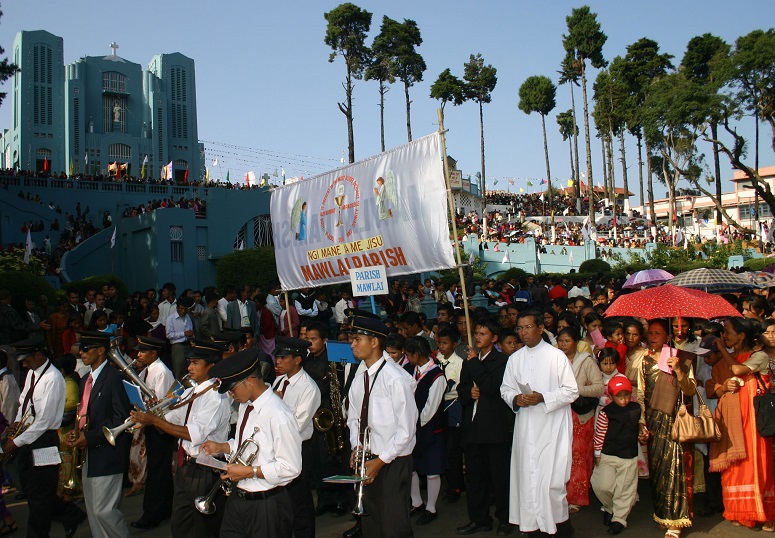
Widespread protests have forced the government in Christian-majority Meghalaya State in north-east India to restore the Good Friday holiday.
The coalition government, to which the Hindu nationalist BJP is a partner, had declared in a circular that Good Friday would be a normal “working day”, but the move was withdrawn on Tuesday, 27 March.
“This cannot be seen in isolation from the BJP becoming a part of the ruling coalition after the February election.”
“We are happy that the government officials acted promptly and reversed the controversial order,” a senior Christian leader based in state capital, Shillong, told World Watch Monitor today (29 March).
P.B.M. Basaiawmoit, a Presbyterian Church member and former vice-president of the National Council of Churches in India, said that he wrote a letter to key government officials as soon as he heard about the plan on Saturday, 24 March.
The circular was issued by the BSNL, an Indian telecom corporation, and the Indian Council for Agricultural Research, but only in Meghalaya, where Christians account for 75 per cent of the state’s population of three million.
In his letter, Basaiawmoit said he had questioned why Christians were being denied the religious freedom guaranteed to them under the constitution, and asked whether the order was only “a fabricated one to create confusion and resentment”.
Meanwhile, the leaders of a political party called Khun Hynniewtrep National Awakening Movement (KHNAM) met Rajendra Kumar, BSNL general manager for Meghalaya, to seek “clarification” on the order.
“We object to any central government offices declaring Good Friday as a working day,” KHNAM’s leaders said at a news conference on 26 March. “This decision was against the sentiments of the Christians and against the provisions of the constitution.”
Meghalaya state witnessed similar protests around Good Friday 2017 after the BJP-led federal government chose Good Friday to launch ‘Digital India Day’. But following protests, three Christian-majority states in the north-east, including Meghalaya, were exempted from its observation.
“This decision was against the sentiments of the Christians and against the provisions of the constitution.”
Similarly, the BJP-led government in Gujarat in western India, the home state of Prime Minister Narendra Modi, was forced to retract its bid to make Good Friday a “working day” in 2016.
There was also a furore in 2015 when India’s second-most populous state, Maharashtra, launched Good Governance Day and asked its employees to conduct training programmes on Christmas Day. Both Good Friday and Christmas Day are national holidays in India.
“This episode shows that the BJP will do anything wherever they are in power,” Basaiawmoit said. “We have to be on the alert.”
“I cannot understand why national organisations should issue orders to offend a community in a particular state,” he added. “This cannot be seen in isolation from the BJP becoming a part of the ruling coalition after the February election.”
The recent local elections in Meghalaya led to a hung Assembly, with the ruling Congress Party winning 21 out of 60 seats and the BJP’s major partner, NPP, winning 19. With the support of splinter parties, the BJP eventually put together 34 seats and so formed a government.
Meanwhile, church leaders in nearby Nagaland State, where more than 90% of the population is Christian and where there is also a new BJP-led government, have rejected the new government’s proposal to sponsor free Holy land pilgrimages for Christians, a promise the BJP had made ahead of elections.
Following up on its electoral promise, the People’s Democratic Alliance (PDA) government, of which the BJP is a major partner, announced the introduction of a new programme called ‘Holy Land tours and pilgrimages’.
However, Nagaland’s churches in a joint press statement on 24 March said such promises were “not in sync with the secular ethos of the country”.
